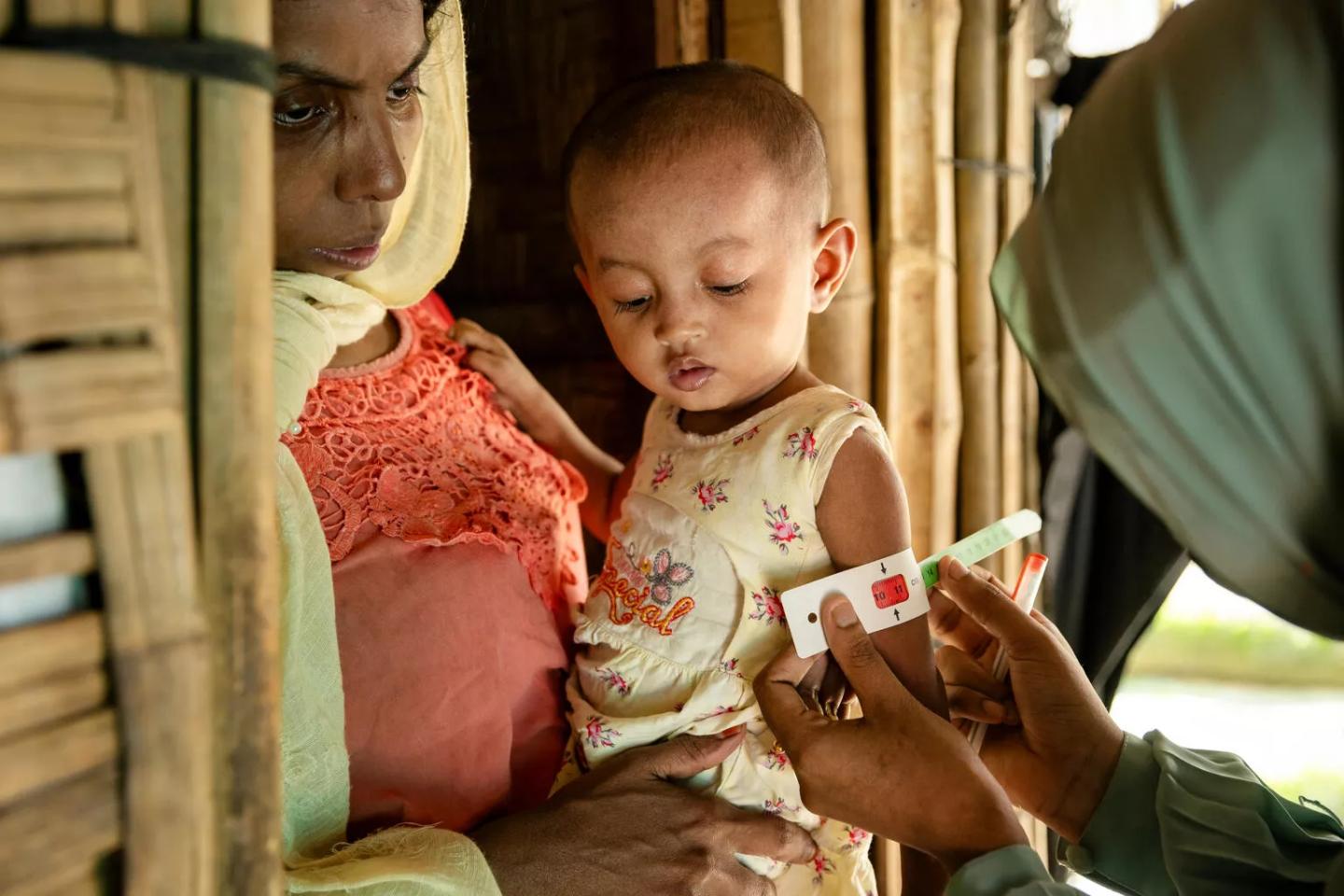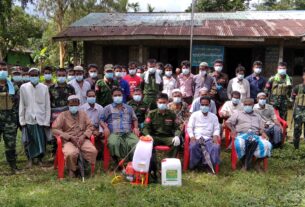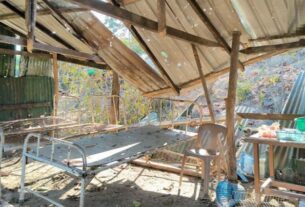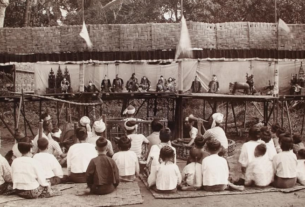Rohingya Refugees Suffer as Global Aid Cuts Slash Essential Services
Global aid cuts and an influx of new refugees have caused child malnutrition to surge above emergency thresholds in the world’s largest refugee settlement in Cox’s Bazaar, Bangladesh. Islamic Relief aid workers say many families are now skipping or sharing meals, children are dropping out of school, and there is a rise in early marriage as families struggle to survive.
There has been at least a 27% increase in severe acute malnutrition reported in the Cox’s Bazaar camps — which now host more than 1.1 million Rohingya refugees — when measured against last year. Conditions have massively deteriorated in the past few months as funding cuts have slashed people’s access to food and healthcare at the same time as more refugees arrive, with 160,000 fleeing an escalation in violence in Myanmar since late-2024.
The vast majority of new arrivals don’t have their own shelter and are sharing overcrowded facilities with relatives or other families. Most don’t have access to income and many individuals are consuming less than 1,000 calories per day.
It is nearly eight years since the first wave of Rohingya fled violent attacks in Myanmar and sought refuge in Bangladesh in August 2017. International funding for the crisis has been declining for several years, but has suffered by far the biggest cuts this year despite the rising number of refugees. In early 2025 the US government – which previously funded around 55% of the humanitarian response at Cox’s Bazaar – cut its funding by around $200 million. Islamic Relief is calling on other governments to step up and help fill the gap.
Nearly two thirds of the way through the year, the Joint Response Plan (JRP) for the Rohingya crisis has just 36% of its $934 million target, leaving significant shortfalls in the humanitarian response.
Hossein Shahid, Islamic Relief Programme Manager for Cox’s Bazaar, said: “Rohingya communities are incredibly resilient and have suffered enormously over the years, but the level of frustration is rising. More people keep arriving in the camps, but essential services are being slashed due to lack of funds. Healthcare is dwindling, with many health facilities closing or running out of basic medicine. Sanitation and water infrastructure has fallen into disrepair, with some families now forced to defecate in the open, which can quickly spread disease. At some sites, water is available for only one hour per day.
We are seeing rising malnutrition, especially among young children, infants and new mothers. Many parents are giving most of their food to their children, and people are now surviving on less than 1,000 calories a day, which is far below emergency thresholds.”
Islamic Relief continues to provide vital aid to Rohingya refugees, including water, sanitation, food, shelter, and fuel, but many agencies are having to cut services because of the funding shortfalls. In the past 18 months, at least 11 health centres have had to close, leaving around 300,000 refugees without access to healthcare. There is a shortage of essential medicine, including treatment courses for serious illnesses such as Hepatitis C. Specialist services for people with disabilities or mental health issues have also been forced to shut down.
UN food rations in Cox’s Bazaar — which were already cut from $12 per family per month in 2023 to $10 in 2024 — are facing further cuts from September unless new funding is quickly secured.
Abdur Rashid, 43, a Rohingya man who has been living in Cox’s Bazaar since 2019, told Islamic Relief that his family’s monthly food allowance lasts just 15 days: “The services have been decreasing but more people are arriving. I’m struggling to provide the education and needs for my children. The food allocated for a month is finished after 15 days. After that we survive on lentils, salt and rice. The shelter is too small for us, so we go to sleep hungry and without enough space. It affects our mental state and my family ask why we came here and say that it’s a curse. I want to return home, but I’m scared. More family members have recently arrived here fleeing Myanmar.”
Many people now have little hope for the future – stuck in camps without work or services, but unsafe for them to return home. An entire generation is now growing up in the camps, but education services are also diminishing, with 1,200 teachers also recently cut.
wsnews24.com, which spoke directly with Rohingya refugees in the camps, confirmed their accounts of deepening hardship and despair. Families described the daily struggle to feed their children, the mental toll of overcrowded shelters, and the fear that conditions will only get worse if international aid continues to decline.
Humanitarian aid is critical but ultimately Rohingya families should have the choice to return home to Myanmar in a voluntary, safe and dignified manner. International governments should step up diplomatic efforts to protect Rohingya communities, uphold their rights and explore sustainable solutions, including options for resettlement in other countries to ease the pressure on Bangladesh, which is hosting the majority of Rohingya refugees.




